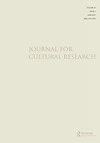Ethnicity, cultural hybridity & Felanee: women question in India’s Northeast
IF 0.6
Q1 CULTURAL STUDIES
引用次数: 0
Abstract
ABSTRACTWomen and children have often been affected by conflicts taking place in India’s Northeast. Although human rights abuse by armed forces and militias has been addressed in academia time and again, the weaponisation of ‘rape’ has not declined in the region as evinced by the recent incident in Manipur. As such this essay argues that solidarity among women can not only prevent such heinous crimes but can also dismantle the patriarchal structures that breed rape cultures. Further, literature can work as an agency through which such consciousness of protest and solidarity can be generated. By taking into account the political and cultural discourses of this region and its manifestation in literary works with reference to Arupa Patangia Kalita’s novel The Story of Felanee the essay argues that ethnic assertions diminish the rights of women due to the patriarchal nature of these societies. Since the inter-ethnic conflicts are engineered by the patriarchs of a community in which the women are hapless sufferers, Felanee’s resilience, like the grannies of Shaheen Bagh, exemplifies resistance against oppressive structures. The essay explores the literary representation of patriarchal conditioning of ethnic resurgence, its contestation with cultural hybridisation, and the subsequent dehumanisation of women.KEYWORDS: FelaneeNortheast Indiarapecultural hybridityconflict Disclosure statementNo potential conflict of interest was reported by the authors.种族、文化混杂;Felanee:印度东北部的女性问题
在印度东北部,妇女和儿童经常受到冲突的影响。尽管武装部队和民兵的侵犯人权行为在学术界一再受到关注,但该地区的“强奸”武器化并没有减少,最近在曼尼普尔发生的事件就证明了这一点。因此,本文认为,妇女之间的团结不仅可以防止这种令人发指的罪行,而且还可以拆除滋生强奸文化的父权结构。此外,文学可以作为一种媒介,通过它可以产生这种抗议和团结的意识。通过考虑该地区的政治和文化话语及其在文学作品中的表现,并参考Arupa Patangia Kalita的小说《Felanee的故事》,本文认为由于这些社会的父权性质,种族主张削弱了妇女的权利。由于种族间的冲突是由一个社区的族长们策划的,在这个社区里,女性是不幸的受害者,费拉尼的坚韧,就像沙欣·巴格的祖母们一样,是反抗压迫结构的典范。本文探讨了种族复兴的父权条件的文学表现,它与文化混合的争论,以及随后对女性的非人化。关键词:felane;印度东北部;种杂交种;
本文章由计算机程序翻译,如有差异,请以英文原文为准。
求助全文
约1分钟内获得全文
求助全文
来源期刊

Journal for Cultural Research
CULTURAL STUDIES-
CiteScore
1.40
自引率
0.00%
发文量
23
期刊介绍:
JouJournal for Cultural Research is an international journal, based in Lancaster University"s Institute for Cultural Research. It is interested in essays concerned with the conjuncture between culture and the many domains and practices in relation to which it is usually defined, including, for example, media, politics, technology, economics, society, art and the sacred. Culture is no longer, if it ever was, singular. It denotes a shifting multiplicity of signifying practices and value systems that provide a potentially infinite resource of academic critique, investigation and ethnographic or market research into cultural difference, cultural autonomy, cultural emancipation and the cultural aspects of power.
 求助内容:
求助内容: 应助结果提醒方式:
应助结果提醒方式:


